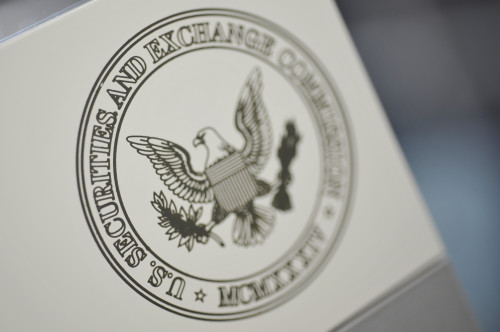By Lewis Krauskopf
NEW YORK (Reuters) -Some Wall Street banks are sounding caution on the U.S. stock rally, warning that stretched valuations have made equities more vulnerable to declines.
The S&P 500 pulled back for the week though it is up more than 13% since the year began, fueled by signs of moderating inflation, excitement over advances in artificial intelligence and growing appetite for risk.
Those gains, however, have driven equities to more expensive levels. The S&P 500 now trades at 19 times its expected 12-months earnings, well above its historic average of 15.6 times, Refinitiv Datastream showed.
Similar valuation levels have preceded periods of rocky performance. Historically, the S&P 500 has experienced a median drawdown of 14% over the next 12 months when valuations stand at current levels or above, compared with a 5% drawdown over a typical 12-month period, Goldman Sachs said.
“With valuations now pushing the outer limits of what we would think would be reasonable. … We would be taking some chips off the table,” said Sameer Samana, senior global market strategist at Wells Fargo Investment Institute (WFII).
Catalysts that could cloud the outlook include unexpected weakness in economic growth, the potential for the Federal Reserve to be more hawkish than markets have priced in, and a rebound in inflation, investors said.
WFII recently downgraded the technology sector, which has led this year’s S&P 500 rally, to “neutral” from “favorable,” citing “unattractive” valuations.
Goldman urged investors to consider “downside protection” to their stock portfolios, though they expect the S&P 500 to reach 4,500 by year-end, or about 3.5% above current levels.
Valuations are even more stretched for the Nasdaq 100, whose 36% rally this year has dwarfed that of the S&P 500. The index trades at nearly 27 times forward earnings estimates, compared to its historical average of 19.3 times, according to Refinitiv Datastream.
The earnings outlook for the high-growth companies that make up the Nasdaq 100 is more tepid than in 2021, when the index also rallied sharply, making it more challenging to justify high valuations, said Michael Purves, chief executive officer at Tallbacken Capital Advisors.
Despite the index’s towering gains, signs of weakness are emerging in technical indicators related to trends and momentum, Purves said.
“This whole wonderful momentum, FOMO trade, is starting to look a little long in the tooth here,” he said, using the abbreviation for ‘fear of missing out.’ “This is sort of like a yellow warning light flashing.”
Investors next week will be watching for more data on the economy’s health, including key inflation data on Friday, as the second quarter comes to an end.
Market participants have cited other reasons for caution, as some tailwinds that have supported stocks in recent months may be sputtering out.
One of these is positioning: investors fearful of missing out on gains have loaded up on stocks in the last several weeks. A measure tracked by Deutsche Bank showed the highest investor positioning in equities since January 2022.
While the rotation into stocks has helped buoy markets, it has also left less fuel on the sidelines to power further gains.
“Light positioning should no longer be a tailwind for the equity market,” Goldman’s analysts wrote.
To be sure, there are signs the rally could run further. The S&P 500’s over 20% move up from its October lows has convinced some investors that equities are now in a “bull market” phase, and history shows stocks tend to keep rallying after reaching the 20% threshold.
Areas such as industrials and materials have also outperformed this month, fueling optimism that the rally will expand beyond the handful of tech and other megacap stocks that have mostly propelled this year’s gains.
A broadening rally “should make investors feel a little bit more positive,” said Anthony Saglimbene, chief market strategist at Ameriprise Financial. But the index’s quick burst above its short and long-term technical trend lines could mean a pullback is coming, he noted.
“From a near-term perspective, investors should expect stocks to just cool a little bit.”
(Reporting by Lewis Krauskopf; Editing by Ira Iosebashvili and Richard Chang)







